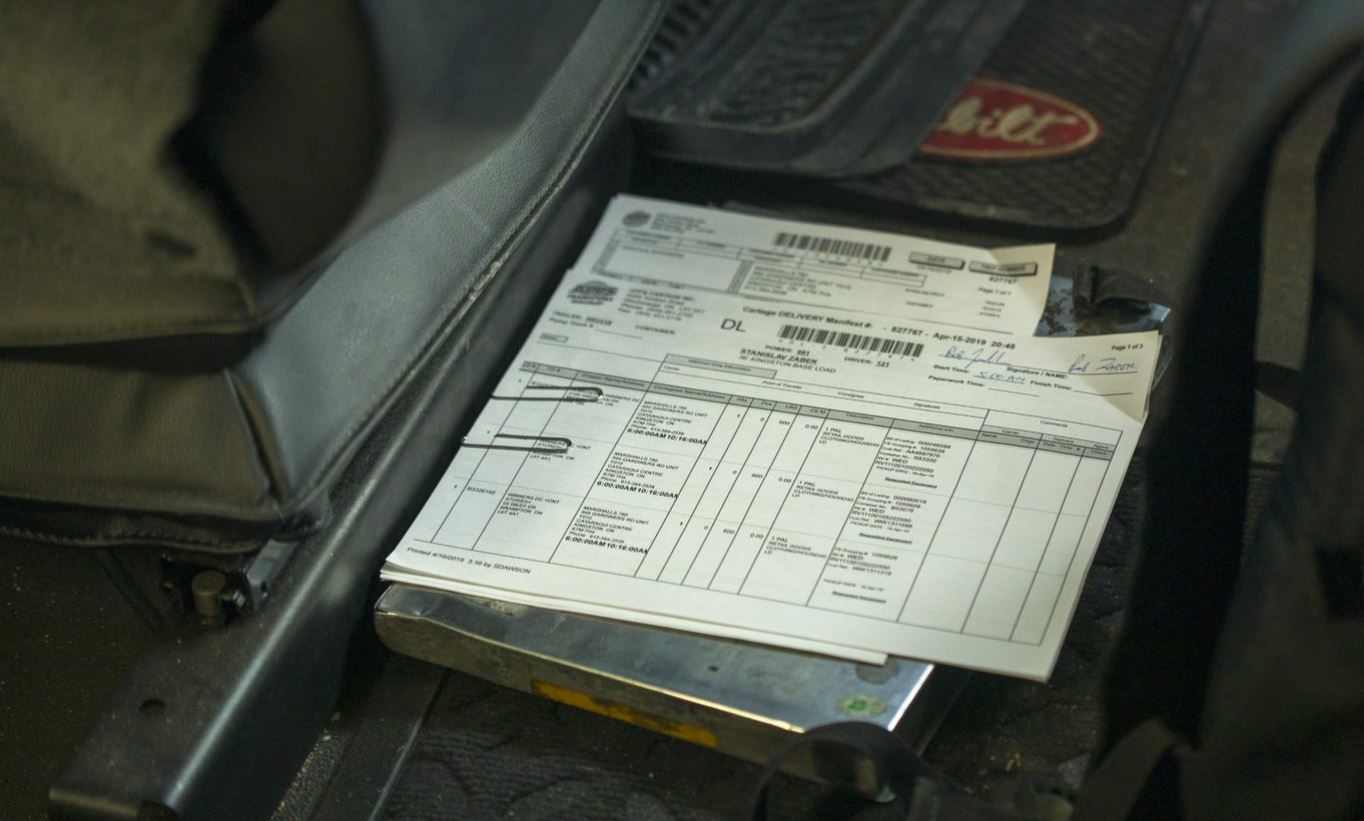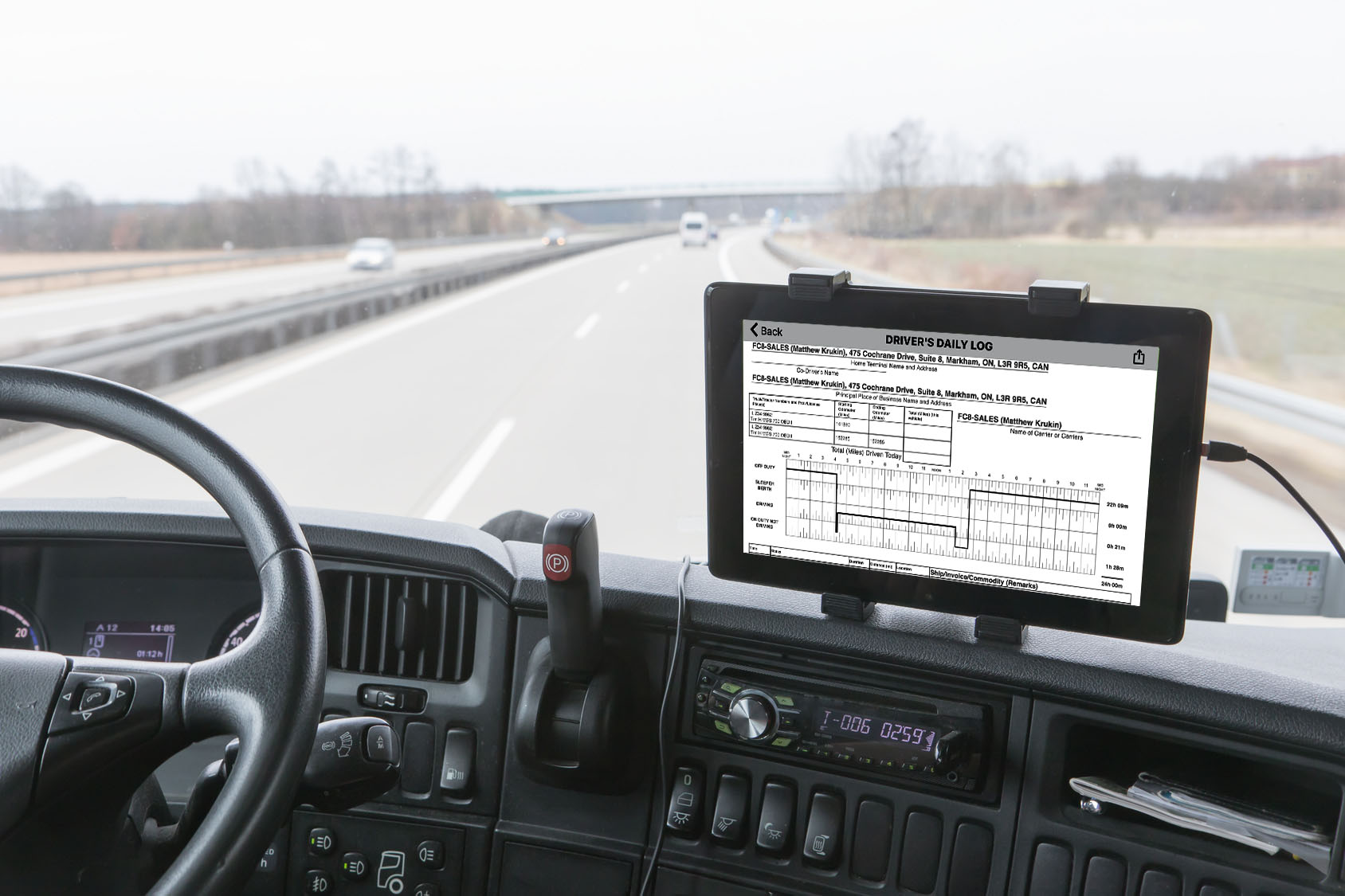I recently met with a major client to discuss how they could apply for a Transport Canada Federal Hours of Service Exemption Permit, as they are occasionally asked to operate a commercial motor vehicle that is likely used for emergency purposes. In response to the inquiry, I drafted the following guidance that may be applicable to your operation as well.
A Federal motor carrier may pursuant to section 16 of the Motor Vehicle Transport Act, apply for a specific exemption to allow their drivers an alternative to operating under the Commercial Vehicle Drivers Hours of Service Regulations – SOR-2005-313.
After Transport Canada consults with the affected provinces and being of the opinion that the exemption is in the public interest and is not likely to affect motor carrier safety, extra-provincial truck undertakings and their drivers who are employed or otherwise engaged in the transport of a specific product or service may be exempt from having to meet specific requirements of the Commercial Vehicle Drivers Hours of Service Regulations– SOR-2005-313 , subject to specific conditions that are set out below.
Purpose
The purpose of this exemption would be to allow extra-provincial truck undertakings and their drivers to operate under a more flexible work schedule as an alternative to the accumulation of on-duty hours by drivers.
Application
This exemption would apply to extra-provincial truck undertakings and their drivers of trucks, tractors, trailers, or any combination of them who are employed or otherwise engaged in the transportation of a specific product or service within and between specific provinces and/or territories.
This exemption would apply only to drivers directly employed by, and vehicles registered to, an eligible extra-provincial truck undertaking.
Extra-provincial and intra-provincial truck undertakings engaged under contract to an extra-provincial truck undertaking operating under this exemption are prohibited from operating under the exemption issued to that extra-provincial undertaking.
Definitions
All definitions in the SOR-2005-313 would apply to this exemption. In addition, for the purposes of this exemption,
“Base jurisdiction” means the province where the commercial vehicle is registered or base-plated.
Conditions
This exemption would likely be subject to the following conditions:
- Prior to commencement of operations under this exemption, the extra-provincial truck undertaking shall:
- implement either the fatigue management program or other carrier-based program that has been submitted for review to the provincial hours of service director of the base jurisdiction, and subsequently is deemed acceptable;
- provide to its dispatchers, supervisors and drivers, fatigue management and hours of service training prior to the commencement of operation under the exemption;
- ensure the training provided to its employees is documented in writing;
- ensure that training provided to its employees, specifically with respect to fatigue management and hours of service, is deemed acceptable by the provincial hours of service director of the base jurisdiction;
- implement a driver monitoring program to ensure compliance with this exemption’s conditions and SOR-2005-313;
- notify the provincial hours of service director of the base jurisdiction in writing of its intention to operate under this exemption with an anticipated start date;
- provide to the provincial hours of service director of the base jurisdiction documentation that will contain the following information:
- description of the commercial vehicles (e.g. power unit, trailer);
- the license plate and unit numbers of all vehicles and the province of issuance;
- the names of drivers who will operate the commercial vehicles; and
- the drivers’ driving license numbers and province of issuance; and
- The extra-provincial truck undertaking and driver shall only operate under this exemption as specified in the permit.
- While operating under this exemption, the extra-provincial truck undertaking shall:
- hold a valid safety fitness certificate that has been assigned a Satisfactory Audited Safety Rating or a Satisfactory Unaudited Safety Rating by the base jurisdiction pursuant to the Motor Vehicle Transport Act and the Motor Carrier Safety Fitness Certificate Regulations;
- not have reached the second level of intervention with respect to their safety fitness rating as determined by the provincial national safety code director of the base jurisdiction;
- provide to the provincial auditor any documentation and supporting materials required to demonstrate compliance with SOR-2005-313 and the conditions of this exemption;
- submit to random checks with respect to compliance with SOR-2005-313 as well as any additional monitoring deemed necessary by the provincial hours of service director,
- submit to a National Safety Code Standard Facility Audit with respect to its operations, either by the base jurisdiction or a third-party auditor, if deemed necessary by the provincial hours of service director,
- not request, require, or allow a driver to operate a commercial vehicle under the provisions of this exemption without taking at least 36 consecutive hours of off-duty time within any 14-day period. Note: For clarity, this means a driver cannot accumulate more than 12.5 consecutive on-duty days and the minimum 36 consecutive hours of off-duty time must be taken in any 14-day period;
- after the 6th consecutive day in any 14-day period, not request, require, or allow a driver to operate a commercial vehicle under the provisions of this exemption after accumulating 13 hours of driving time or 14 hours of on-duty time unless the driver takes at least 9 consecutive hours of off-duty time before driving again. Note: For clarity, all daily limits as defined in SOR-2005-313 remain unchanged and the required consecutive hours of off-duty time before driving again returns to 8 hours once the consecutive off-duty time (minimum 36 hours) required is taken;
- not request, require or allow a driver to operate a commercial vehicle according to SOR-2005-313 without first requiring the driver to take a specific number of consecutive hours of off-duty time;
- require every driver operating a commercial vehicle under this exemption to fill out a daily log each day that accounts for all of the driver’s on-duty time and off-duty time for that day. The daily log must show activity for the current day and the previous 14-day period;
- require that a copy of this exemption and any letter of acknowledgement of the undertaking’s intention to operate under this exemption received from the provincial hours of service director of the base jurisdiction is placed in the commercial vehicles that are operated in accordance with the conditions of this exemption;
- keep at their principal place of business or other location deemed acceptable by the provincial hours of service director, a copy of the documents referred above, as well as daily logs and other supporting documents that demonstrate compliance with the conditions of this exemption and shall at the request of an inspector or provincial hours of service director, immediately make available for inspection such documentation;
- inform the provincial hours of service director at the start of the spring planting season of any changes to the list referred above, and keep the director informed of any changes so that the director may accurately and quickly identify the commercial vehicles and the drivers.
- notify the provincial hours of service director in the base jurisdiction without delay of any collision, involving any of the commercial motor vehicles or drivers operating under this exemption, if the laws of the province in which the collision occurred require it to be reported to police.
- collect data to support an assessment of the efficiency, effectiveness, and safety performance of the undertaking with respect to their operations under this exemption. This data shall be submitted to Transport Canada at the termination of this exemption, covering the remaining period, and include, but not be limited to information related to operating under this exemption including: number of drivers and vehicles, number of accidents and incidents, safety or traffic violations, product shipments.
- monitor and verify compliance with this exemption’s conditions and the SOR-2005-313 for all drivers of commercial vehicles operating under this exemption through the driver monitoring program at least once per week, and where non-compliance is observed, document the non-compliance, and ensure immediate remedial actions are taken; and
- comply with all the other applicable requirements of SOR-2005-313.
Prior to commencement of operations under this exemption, the driver of an extra-provincial truck undertaking operating a commercial vehicle shall take the fatigue management and hours of service training provided by the extra-provincial undertaking and other regulatory and operational safety training applicable to the driver’s duties.
4. While operating under this exemption, the driver of an extra-provincial truck undertaking operating a commercial vehicle shall:
- take the fatigue management and hours of service training, or a condensed refresher course;
- not utilize the provisions for deferral of daily off-duty time under section 16 of SOR-2005-313;
- fill out a daily log each day that accounts for all of the driver’s on-duty time and off-duty time for that day as well as the previous 14-day period;
- indicate in the “Remarks” section of each daily log, whether he or she operated under the exemption on that day. This indication shall be made prior to accumulating 70 hours of on-duty time during any period of 7 days under cycle 1 or 120 hours of on-duty time during any period of 14 days under cycle 2, and for each day thereafter. All hours accumulated since the last 36-hour consecutive off-duty period shall apply towards the schedule indicated above.
- take at least 36 consecutive hours of off-duty time within any 14-day period. For clarity, this means a driver cannot accumulate more than 12.5 consecutive on-duty days and the minimum 36 consecutive hours of off-duty time must be taken in any 14-day period;
- after the 6th consecutive day in any 14-day period, not operate a commercial vehicle under the provisions of this exemption after accumulating 13 hours of driving time or 14 hours of on-duty time unless the driver takes at least 9 consecutive hours of off-duty time before driving again. For clarity, all daily limits as defined in the Regulations remain unchanged and the required consecutive hours of off-duty time before driving again returns to 8 hours once the consecutive off-duty time (minimum 36 hours) required is taken;
- not operate a commercial vehicle under SOR-2005-313,without first taking a specific number of consecutive hours of off-duty time;
- within the commercial vehicle, carry a copy of this exemption and any letter of acknowledgement of intention to operate under this exemption that has been issued by the provincial hours of service director of the base jurisdiction, and shall make these copies available for inspection by an inspector, immediately upon request; and
- comply with all the other applicable requirements of SOR-2005-313
5. Drivers and extra-provincial undertakings shall be in compliance with all applicable federal and provincial safety requirements such as, but not limited to, those contained within the Transportation of Dangerous Goods requirements.
6. An extra-provincial undertaking shall continue to follow any voluntary safety measures it normally follows while operating under the SOR-2005-313, such as emergency response procedures and accident prevention best practices.
Validity
This exemption would come into effect at a time specified by Transport Canada, and would remain valid until the exemption was cancelled in writing by the Minister where he/she is of the opinion that it is no longer in the public interest, or that it is likely to affect motor carrier safety.



































































































